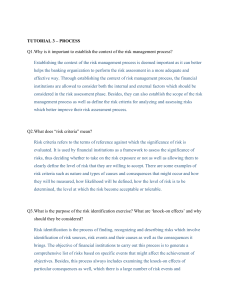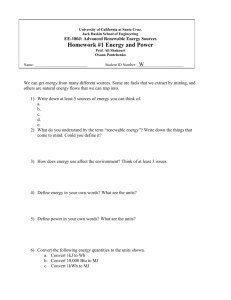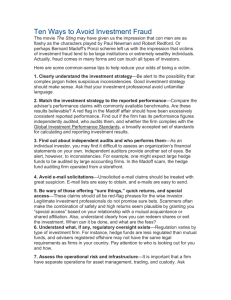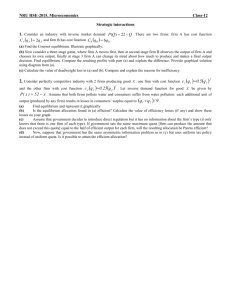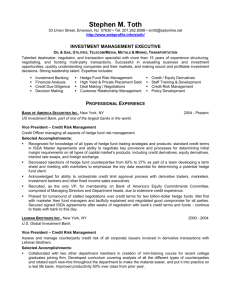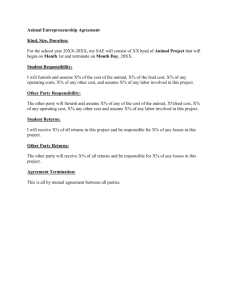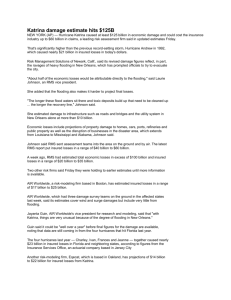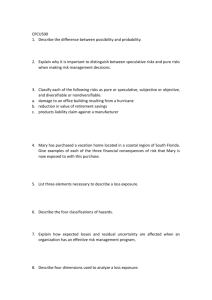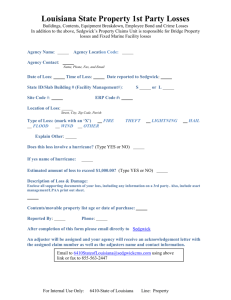Derivatives vs. Insurance: A Comparative Analysis
advertisement
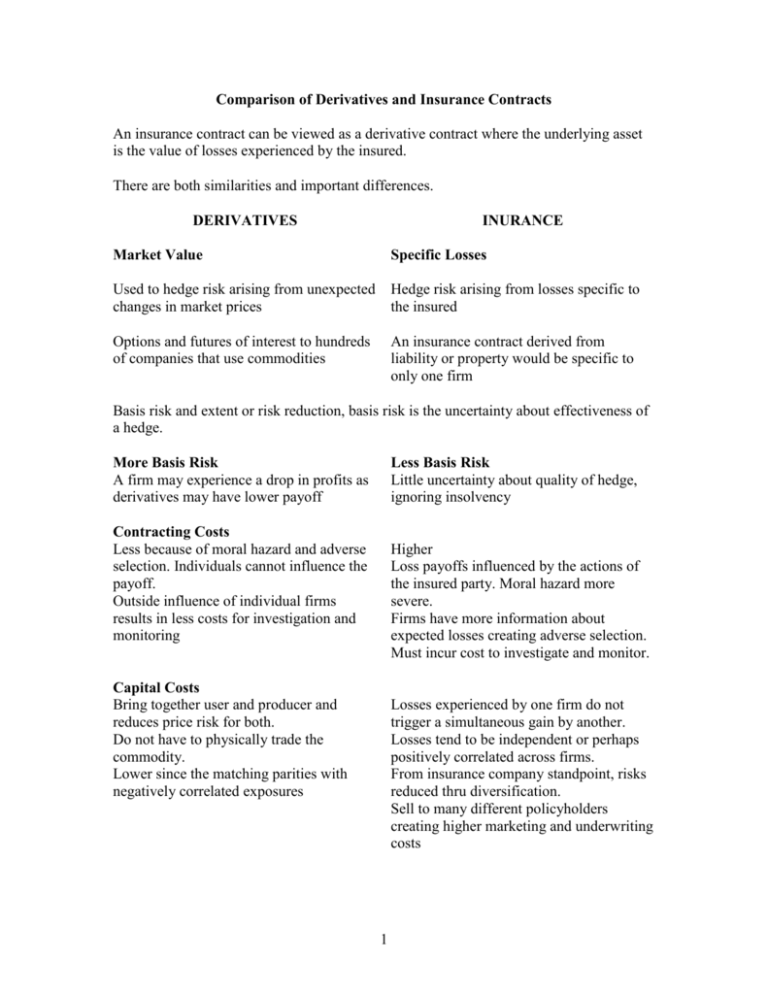
Comparison of Derivatives and Insurance Contracts An insurance contract can be viewed as a derivative contract where the underlying asset is the value of losses experienced by the insured. There are both similarities and important differences. DERIVATIVES INURANCE Market Value Specific Losses Used to hedge risk arising from unexpected changes in market prices Hedge risk arising from losses specific to the insured Options and futures of interest to hundreds of companies that use commodities An insurance contract derived from liability or property would be specific to only one firm Basis risk and extent or risk reduction, basis risk is the uncertainty about effectiveness of a hedge. More Basis Risk A firm may experience a drop in profits as derivatives may have lower payoff Less Basis Risk Little uncertainty about quality of hedge, ignoring insolvency Contracting Costs Less because of moral hazard and adverse selection. Individuals cannot influence the payoff. Outside influence of individual firms results in less costs for investigation and monitoring Higher Loss payoffs influenced by the actions of the insured party. Moral hazard more severe. Firms have more information about expected losses creating adverse selection. Must incur cost to investigate and monitor. Capital Costs Bring together user and producer and reduces price risk for both. Do not have to physically trade the commodity. Lower since the matching parities with negatively correlated exposures Losses experienced by one firm do not trigger a simultaneous gain by another. Losses tend to be independent or perhaps positively correlated across firms. From insurance company standpoint, risks reduced thru diversification. Sell to many different policyholders creating higher marketing and underwriting costs 1 Capital A small amount of capital needed To ensure contractual performance. Derivatives will require a payment Only when firms cash flow otherwise Would be high Insurers have to hold capital to pay claims and this cost is an additional cost. Must also hold capital to satisfy policyholders Liquidity Greater Large numbers affected by prices Lower transaction costs Firm can quickly establish a hedge Liquid market Buy or sell quickly Less Modification to provide more of less coverage can take time and create expenses Illiquid market Must wait for someone to pay asking Price or lower price 2
